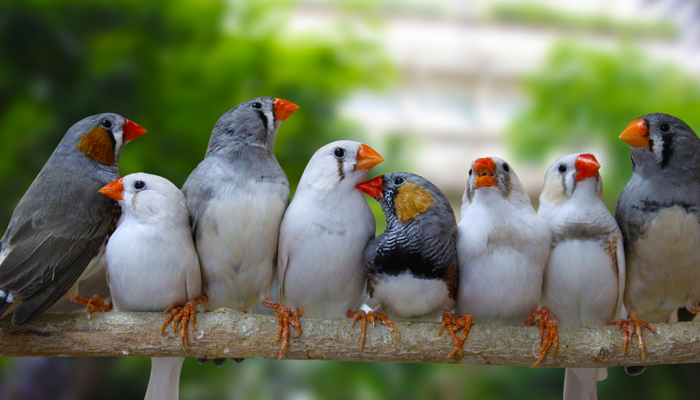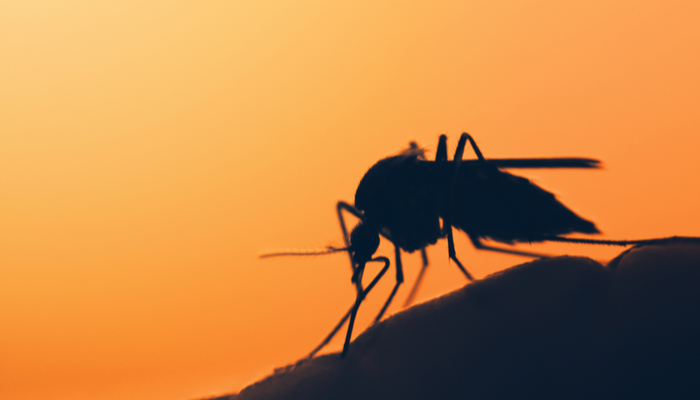.png?width=700&height=400&name=So%20much%20science,%20so%20little%20time%20(April%202018%20edition).png)
Spring is here! And it’s not just flowers that are in bloom. All over the world, seeds of ideas are being planted, innovative research is germinating, and fresh science is flourishing. To bring you a bouquet of the latest breakthroughs, we’ve pruned the very finest specimens of exciting, novel and funny science stories for this month. So, come take in the aroma of cutting-edge progress!
Didn’t get an A? Catch some Z’s!
Your biological clock could be responsible for your slip in grades, according to a new study from UC Berkeley and Northeastern Illinois University. The findings show that students whose circadian rhythms were not in sync with their class schedules achieved lower marks due to 'social jet lag'. If you’ve ever felt sluggish in a seminar or languid in a lecture you may know the feeling.
Researchers monitored the typical times that university students would log in to their personal profiles, and then sorted them into 'night owls', 'daytime finches', and 'morning larks'. From nearly 15,000 students, they were able to correlate that a night owl taking morning classes, for example, would struggle much more with academic focus. Soon these results may mean that class schedules could be tailored to students’ biological rhythms. Now, time for a nap…
Biting back: revenge is best served at ~ 37°C
When it comes to the mosquito, unfortunately there’s a fine line between wanting to squash them and applauding their evasive skill. But soon, everybody’s least favourite disease vector may be biting off more than it can chew, thanks to novel research conducted at the Liverpool School of Tropical Medicine.
Ivermectin, a drug that was developed in the 1980s to fight parasites, may now be the latest weapon in the war on malaria. Researchers discovered that with just three high doses of ivermectin, human blood became deadly to mosquitoes for up to 28 days. This killing power was much more extensive than previously anticipated. Two weeks after feeding, 97% of the mosquitoes had dropped like flies. (Almost) instant karma!
A bird’s eye view
It has long been known that birds can somehow sense the Earth’s magnetic field. Previously, scientists believed that the iron-rich cells in a birds’ beak were responsible for its navigational prowess, but recent research has shown that in fact it might be down to certain proteins contained within the birds’ eyes.
These ocular compasses give birds their “sixth sense”, and endow them with the uncanny ability to fly home from thousands of kilometres away. Two studies (one examining zebra finches and one studying European robins) both concluded that Cry4, a light-sensitive protein contained within the retina, may be responsible. If this theory is deemed correct, this would be the first time a molecule responsible for the detection of magnetic fields has been discovered in animals. Something to tweet about!
Remember, remember the P. aeruginosa
In a recent study led by scientists at UCLA, a species of bacteria have been determined to have a primitive form of 'memory'. Despite lacking a central nervous system or brain, a strain Pseudomonas aeruginosa has been shown to pass sensory knowledge from one generation of cells to the next.
These findings could be a major step in combating resilient infections caused by bacterial biofilms in the airways of people with cystic fibrosis. It was discovered that biofilms are only able to form because the P. aeruginosa descendants could ‘remember’ the surface-sensing signals of their ancestors. By disrupting these pathways, the bothersome bacterial biofilms could one day be beaten!
Oil-eating bacteria
Oil spills can have a devastating impact on the environment, and unfortunately, they occur far too often. Scientists at the University of Quebec have broken new ground with research that’s aiming to crack this crude problem. They report that Alcanivorax borkumensis, a bacterium that feeds on hydrocarbons, could be the answer as enzymes produced by the bacteria can degrade petroleum products in water and soil.
For some compounds, this degradation was as high as 80%, and the process is effective at removing chemicals such as benzene, toluene, and xylene. A major advantage of cleaning oil spills in this way is that the bacteria could be used to reach inaccessible areas that would otherwise require complex engineering solutions. Pretty slick if you ask me!
Want to keep up to date with the latest life science and marketing news? Then why not subscribe to our monthly newsletter?




